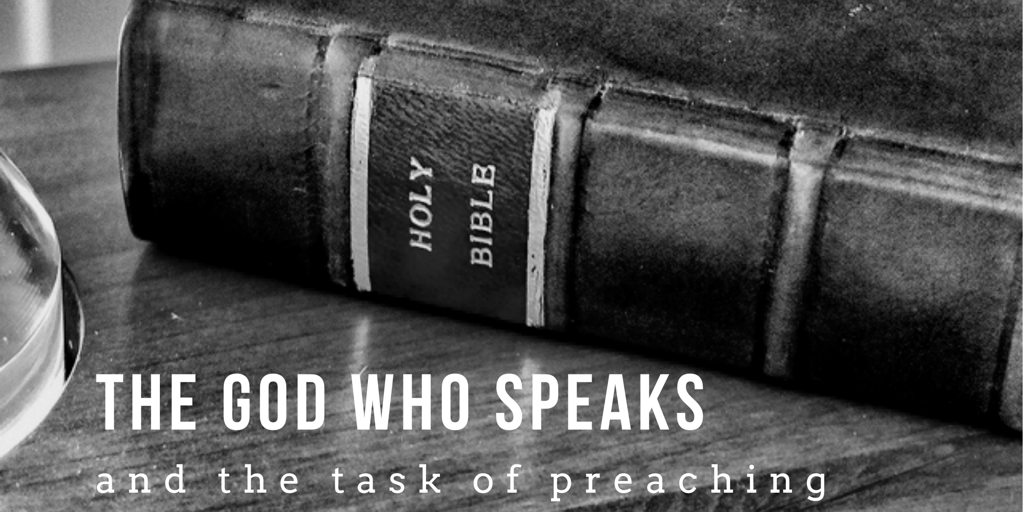
For several years, I traveled a lot for work. I flew all over the country meeting with various Bible colleges, Christian universities, and seminaries. As such, I spent a lot of time on airplanes. And any time you fly, you inevitably have that awkward conversation as they pack you into seats made for people smaller than the average American.
First you offer your name and they respond with their’s. Then the question of whether you’re traveling for work or for personal reasons comes. And then, the question that always provides the most interesting responses. “So what do you do?”
And every time I’ve answered that I am a pastor, I’ve received quizzical looks. Apparently, I don’t fit the general image in most people’s minds as to what a preacher is supposed to look like. I don’t know if it’s the shaved head, the beard (I had grown it out quite long for a while and looked like a bald cousin from Duck Dynasty), or that I don’t normally wear a coat and tie, but almost no one has ever heard me say, “I’m a pastor,” and said, “I can see that.”
Images of the Minister
Even as we think of the images associated with ministry, we generally approach the task with a particular image or images that guide us in our day-to-day actions. Those who view themselves as shepherds or prophets or teachers or evangelists or spiritual gurus or life coaches or servant leaders will all approach ministry in distinct ways. The one who sees himself as a shepherd is more likely to spend extended time with his people and view time locked away in a study preparing for a sermon as wasted time.
The one who envisions himself a teacher is almost the opposite. He would rather study and read and prepare his sermons, viewing the preaching ministry as the best manner through which to love his congregants.
The same is true as we approach the more specific task of preaching. How we view ourselves as we approach the pulpit determines a lot about what we will value and choose in the sacred task.
Images of the Preacher
The Pastor
Those who view the preaching task as primarily pastoral in nature concern themselves with the care and needs of their hearers. As they approach sermon preparation, they are acutely aware of the needs of those in the congregation and they aim their sermon carefully to meet those needs. Their preaching is targeted first and foremost at life-change.
So, they begin with the need and seek to bring God’s Word to bear upon it—What does the Bible say about this particular need or that particular need?
Before moving on, I think it is important to note that this is not a bad thing in itself. Many of us can learn something from this image and be reminded of the importance of the congregation in our preaching. I’ve met too many young preachers that handle the text well and preach a good sermon, but fail to connect it with their hearers—whether that be by speaking over the heads of their congregation by using too much technical jargon or quoting from their favorite lexicon or by using illustrations that were clearly intended for another kind of hearer.
Ultimately, though, I fear that the emphasis of the image of pastor opens us up to a host of potential downfalls, most notably that it lends to the authority of the sermon residing in the preacher himself. He is the one who discerns the needs of the congregation. He is the one who determines which passages speak to those needs. And, in order to avoid potential conflict and/or hurt feelings, he is the one who may decide to avoid difficult or controversial passages of Scripture.
So while the image of the pastor has some points to keep in mind, ultimately, it can lead to drift because the Word and the preacher can come to exist for the sake of the congregant.
The Poet
In college, I thought the Lord had called me to music ministry. So I majored in music right up until I realized that I wasn’t being trained for the ministry—I was being trained to do music and ministry was merely the outlet for it. So, I flipped my major and minor and became a religion major with a minor in sacred music. I had a friend who wanted desperately to become a famous youth-evangelist. That was his heart. But it struck me as odd that he wasn’t a ministry or religion major. He was a speech communications major. As he informed me, he didn’t need the tools to rightly divide the Word—he felt he had those. He needed to be a better communicator.
My concern was that he might become a better communicator of the wrong thing!
There are some who are so excited about the preaching task that the sermon becomes the central component to their overall ministry. For them, the Word and the congregation exist for the sake of the sermon.
They love Rhetoric! They love books on crafting illustrations and coming up with just the right play on words for each point in the sermon. The Word is the tool he uses to craft the sermon and the congregation becomes little more than his audience.
You should study Rhetoric. You should learn to craft better illustrations and select just the right turn of phrase. But not for the sake of highlighting your own creativity. Instead, you should equip yourself to better communicate the word of the King.
The Herald
I will make it easy for you—I am convinced this is the proper image we should view the preaching task. Before there were newspapers and headlines, the herald was the one sent into the kingdom with the message of the king. When he opened his mouth, he spoke with the king’s authority because he was sent by the king with the king’s words. But that authority was derivative. His words only had authority as they communicated the words of the king.
He was entrusted with the message and charged with keeping the integrity of that message. And those who failed to maintain the purity of the king’s words did not keep their place long. They were sent as the emissaries of the king.
That, my friend, is the image I want you to have in mind as you stand and deliver het Word of God. You have been sent into your particular congregation with a message from God. But you don’t have to devise that message, discern the thoughts of the king. You have his written Word. And your task is to re-present that Word.
As such, Dr. Steven Smith used to say, we don’t preach sermons. We preach texts. The Word is the central component of the preaching task. The preacher is merely the mouthpiece; the congregation is the recipient of the Word and their’s is the responsibility to live in response to that message.
Now, I am not saying that the herald’s words are God’s words ex operato. The herald’s words are God’s words only as long as he faithfully and accurately presents them. Our God is a God who speaks. And we have the responsibility to speak his words after him.
In Jonah, chapter 1, we read that the Word of the Lord comes to Jonah and he’s instructed to go to Ninevah and preach against it. We all know what happens next. He goes the wrong way, away from Ninevah, gets swallowed by a great fish, and three days later vomited out on shore.
And then, in chapter 3, we read that the Word of the Lord comes to Jonah a second time. And this time, he is instructed to “call out against the message that I tell you.” The language there is unique in the Hebrew. The same root is used for the verb and the object.
The Lord is being decisively clear on this point. He’s saying, “Jonah, go to Ninevah and preach the proclamation that I am proclaiming to you. Speak the speech that I am speaking to you. Talk the talk that I talk to you. What I say, Jonah, you say.”
That’s what it means to be a herald.
One of the benefits of the image of the herald is that it gives confidence to the reluctant. We all know that ministry does not necessarily mean preaching. Preaching is a component of ministry. Preaching is a specific responsibility given to some ministers, but not all ministers preach.
Which means that some of you don’t feel called to preach. Some of you dread the thought of standing before a group of any size, opening the Bible, and preaching. That’s okay. The key is to communicate God’s Word faithfully and accurately. As long as you do that—and that’s what we’re here to work on—you are standing not in your own authority, but with the authority of the Lord.
For others, however, the idea of standing on a stage is a bit too enticing. Our pride yearns for it to be about us. And to be given such a platform and the image of having the authority of God?!
The image of the herald emphasizes the holy responsibility of the preacher. Each week, the preacher stands before a congregation with the sacred task of bringing God’s Word to bear upon their lives; this is no small thing. There is no greater task, nor a greater responsibility. In that moment, the congregation’s ears are attuned to the voice of the herald in order to hear what the Lord says.
Many preachers, however, fail to grasp the magnitude of this moment and this responsibility. Striving to gain an audience and seeking to endear the congregation to themselves, rather than to God, they toy with foolish remarks and playful stories. They play tricks with words and spin phrases that diminish the gravity of the proclamation.
Each time the herald of God opens the sacred text and speaks, eternity hangs in the balance.
Only the herald who bears the Words and the authority of the king feels the weight of the responsibility that accompanies that task.









